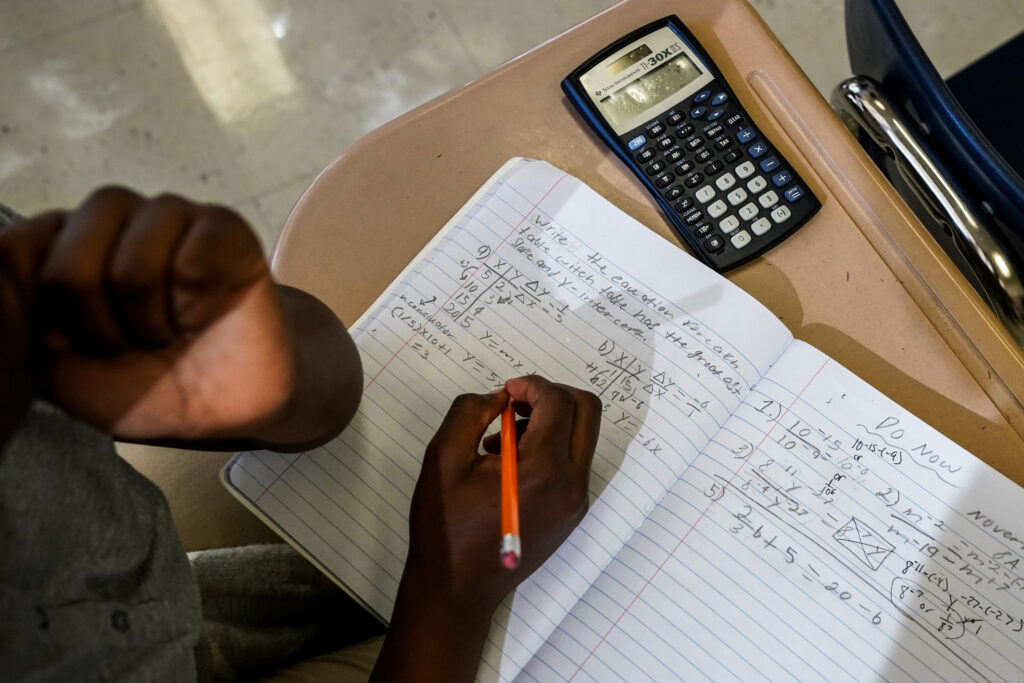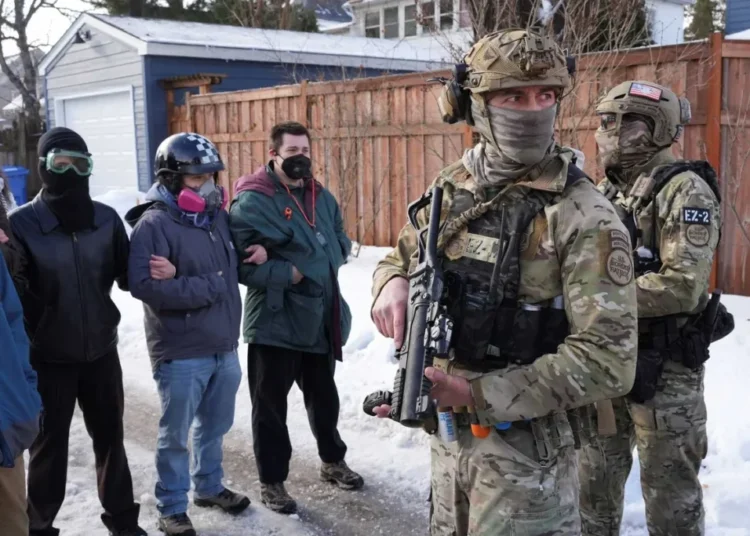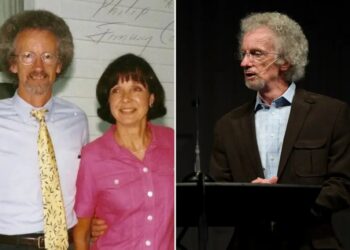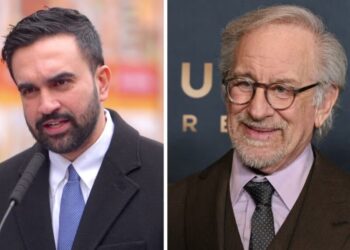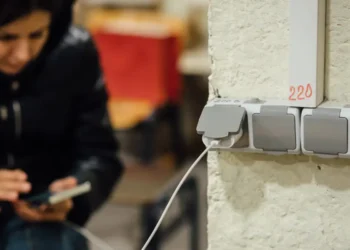A D.C. education nonprofit will use a $20 million gift to tutor 6,000 children in math and train more than 2,000 teachers on the best ways to teach the subject.
The donation, from an anonymous national foundation, will support what leaders have dubbed the “Capital Math Collective,” a citywide effort to boost math scores and make D.C. the first urban school district to outperform the national average by 2030, officials said.
A D.C. education nonprofit will use a $20 million gift to tutor 6,000 children in math and train more than 2,000 teachers on the best ways to teach the subject.
The donation, from an anonymous national foundation, will support what leaders have dubbed the “Capital Math Collective,” a citywide effort to boost math scores and make D.C. the first urban school district to outperform the national average by 2030, officials said.
In 2024, D.C. fourth-graders scored six points lower than the national average for public school students in math, while eighth-graders scored 10 points behind their peers on a national standardized test.
“We want to ensure that every student in [D.C. Public Schools], even starting at a young age, takes a … big step forward in their math journey, in the way of understanding concepts deeply in math,” Lewis D. Ferebee, the school system’s chancellor, said at an event for families on Thursday.
Leaders plan to open two math centers — one at Ballou High School in Southeast Washington and another at a yet-to-be-determined site — to serve as in-person hubs for tutoring and training. The locations will be open to students in the traditional public school system and at charter schools.
The centers will also host events for families so that adults can learn how to help their children and “bridge the gap between our homes and our schools,” said Jim Kline, president and executive director of the DC Public Education Fund, which received the donation. The nonprofit was founded in 2007 to raise private dollars for D.C. Public Schools.
The effort is reminiscent of a reading clinic launched in 2018 by the school district to offer intensive tutoring to struggling learners and train teachers to become literacy experts. Ferebee has credited that program with helping students overcome learning loss from the pandemic. The share of students in the school system who can read on grade level is higher now than it was before, test data from the spring shows.
The traditional school district’s students are also making steady improvements in math. In 2019, 32 percent of D.C. Public School students were on grade level in math. That number fell to 23 percent after the pandemic but rebounded in the spring to 31 percent. School leaders in recent years have embraced new math curriculums, coaching sessions for parents and professional development for teachers.
But as a whole, D.C. students are taking a longer time to recover in math than in reading — reflecting broader challenges around how to help students master a subject they’ll need to succeed in high-demand STEM jobs.
“The Capital Math Collective establishes an important foundation, but we need to ensure that we work to nurture it and build upon it,” Kline said. “Moving forward, we’ll need others to join in this effort — funders, educators, civic leaders — so that every student in D.C. can experience what happens when math becomes a source of power and joy.”
The post Anonymous donor gives D.C. $20 million to boost math scores
appeared first on Washington Post.
